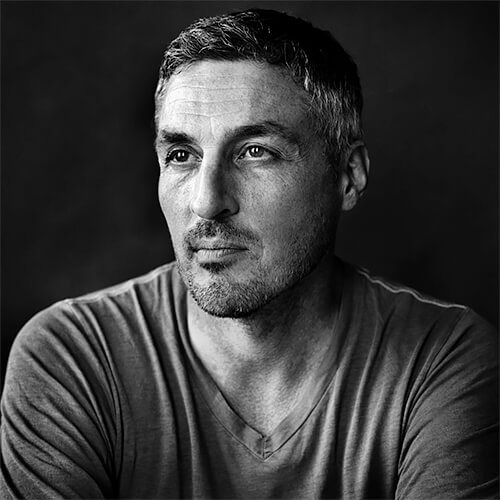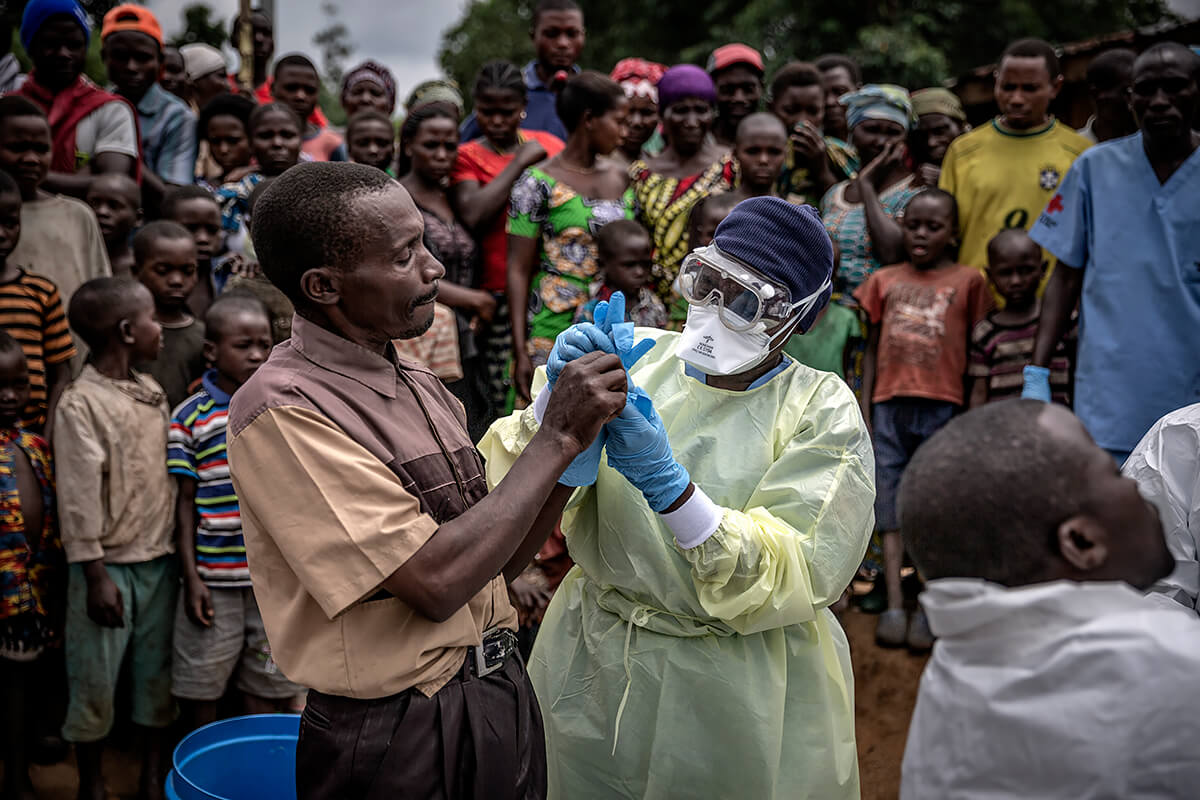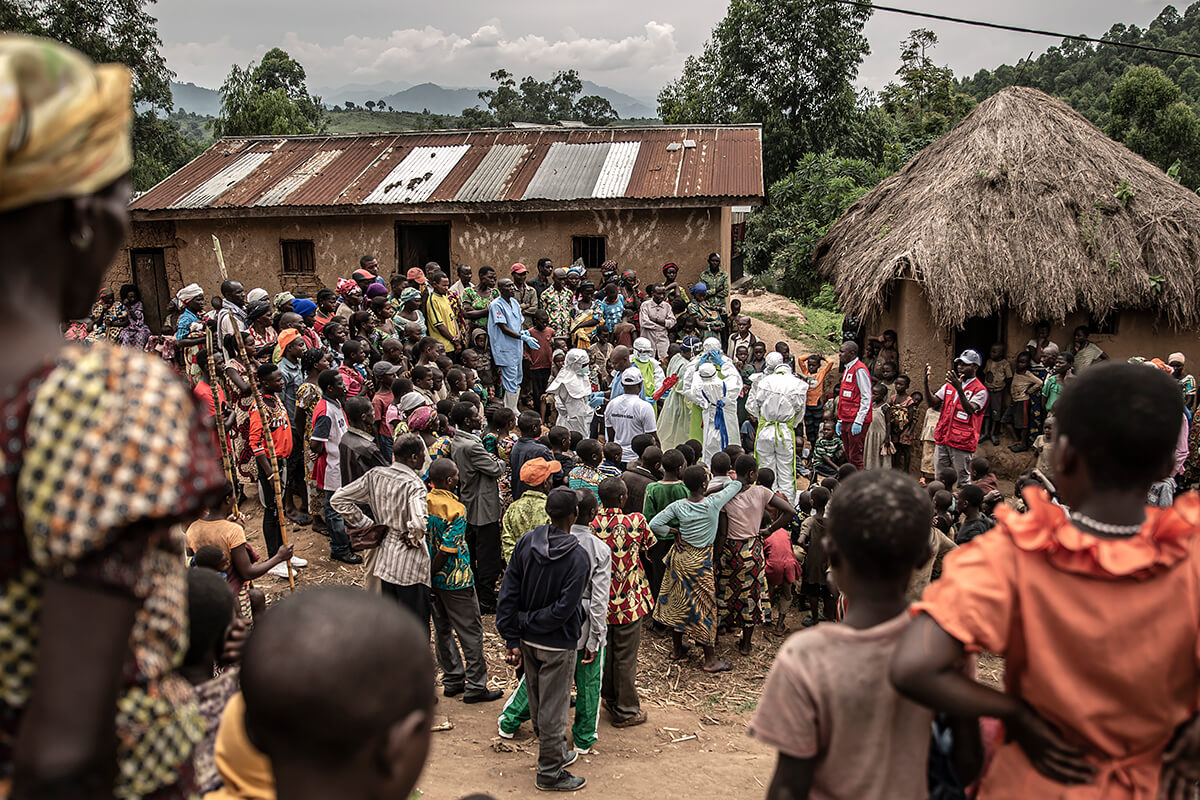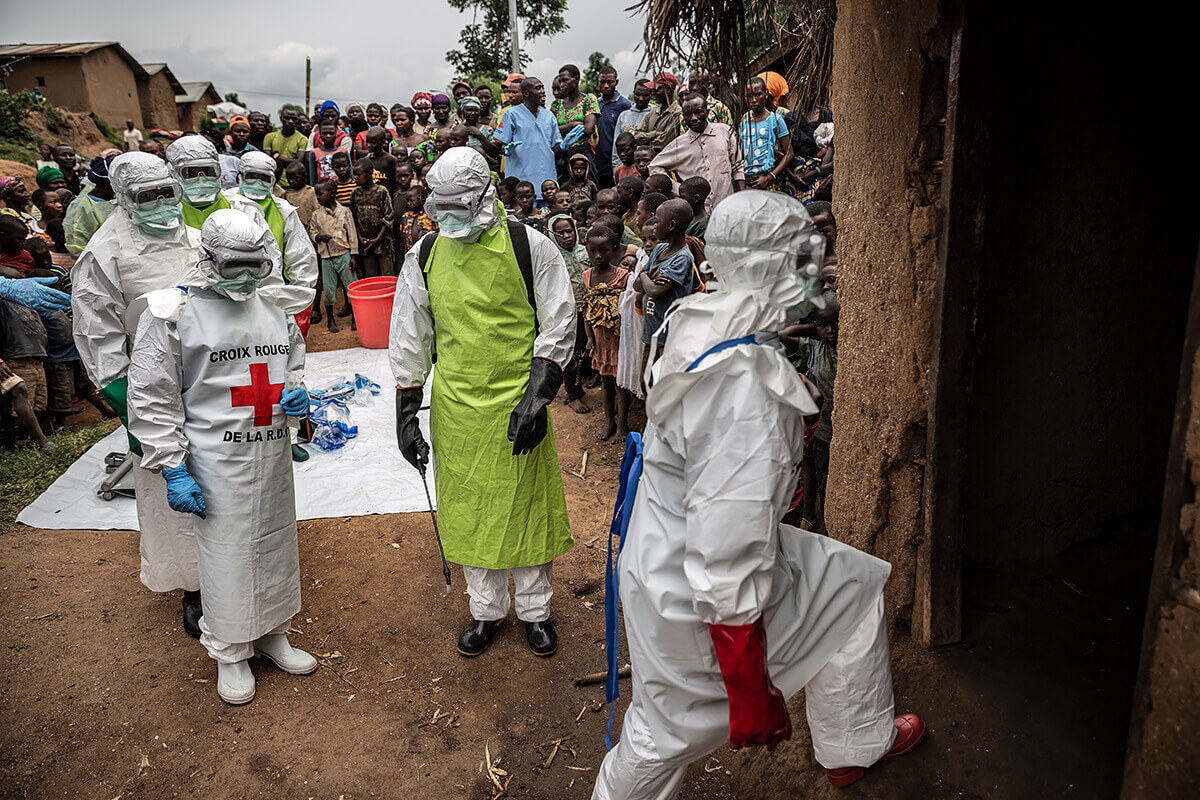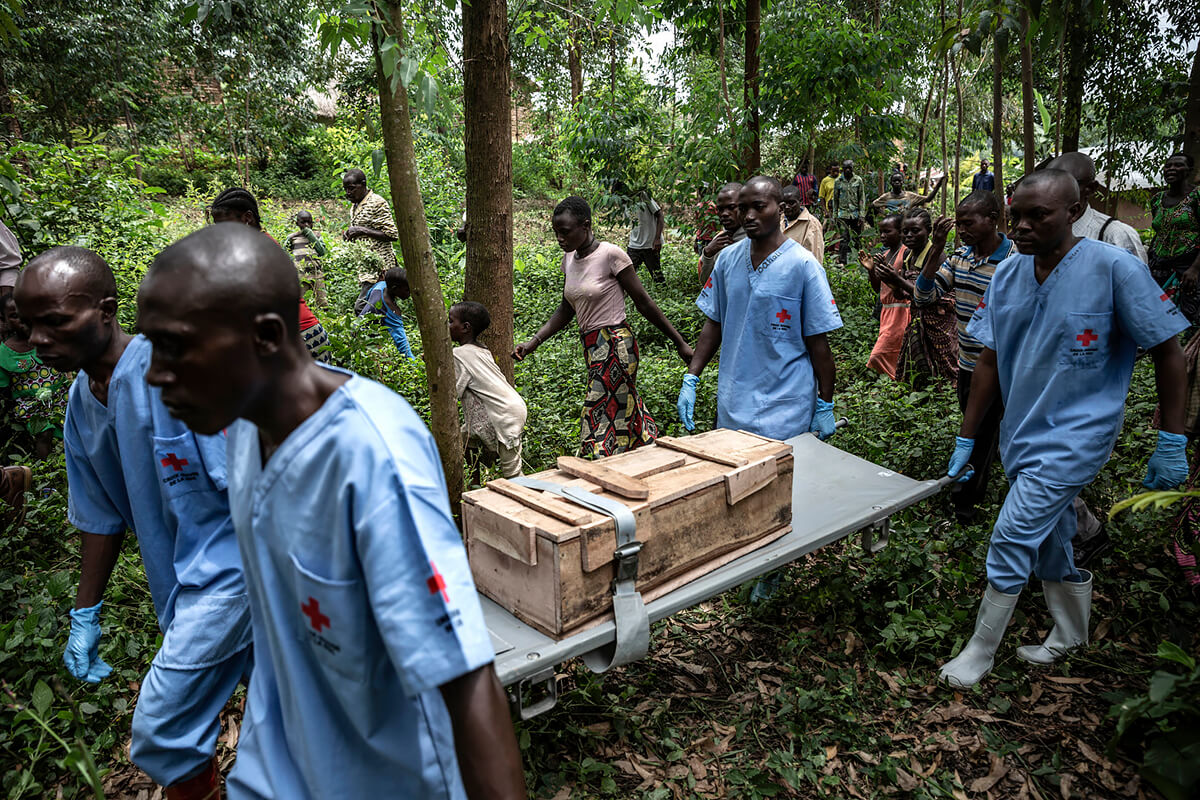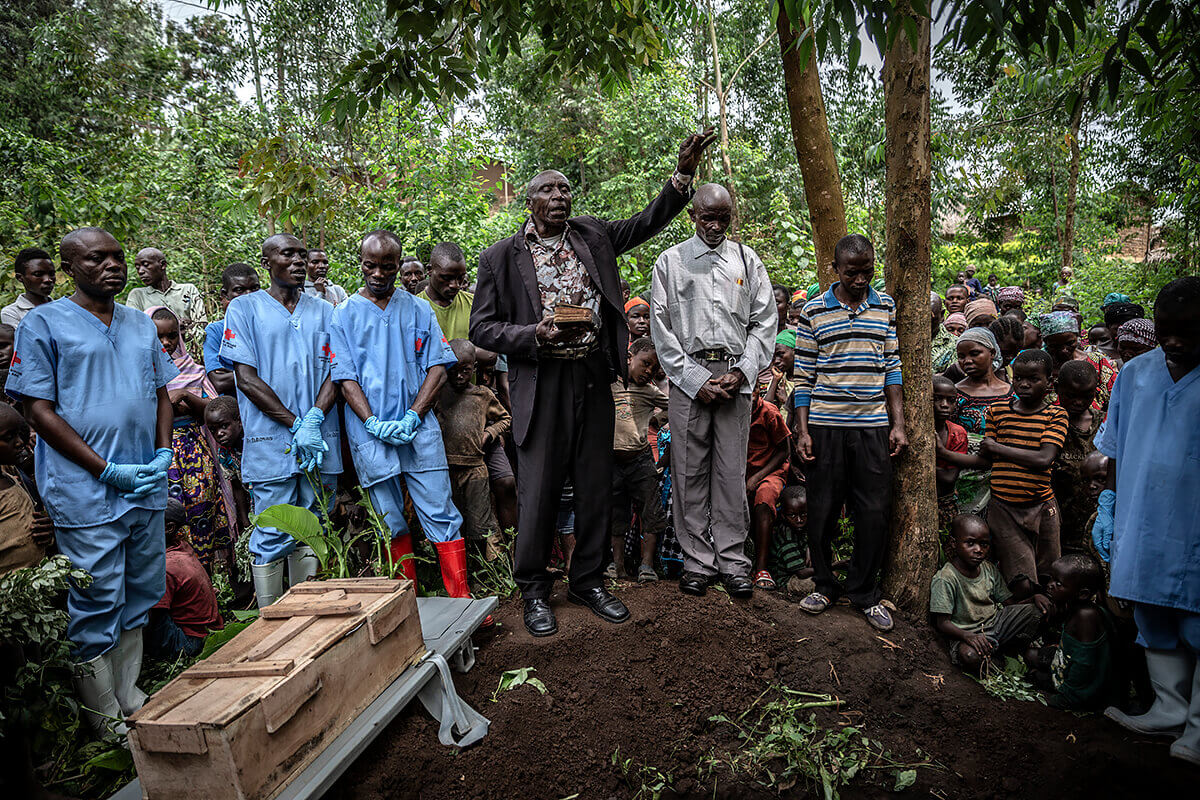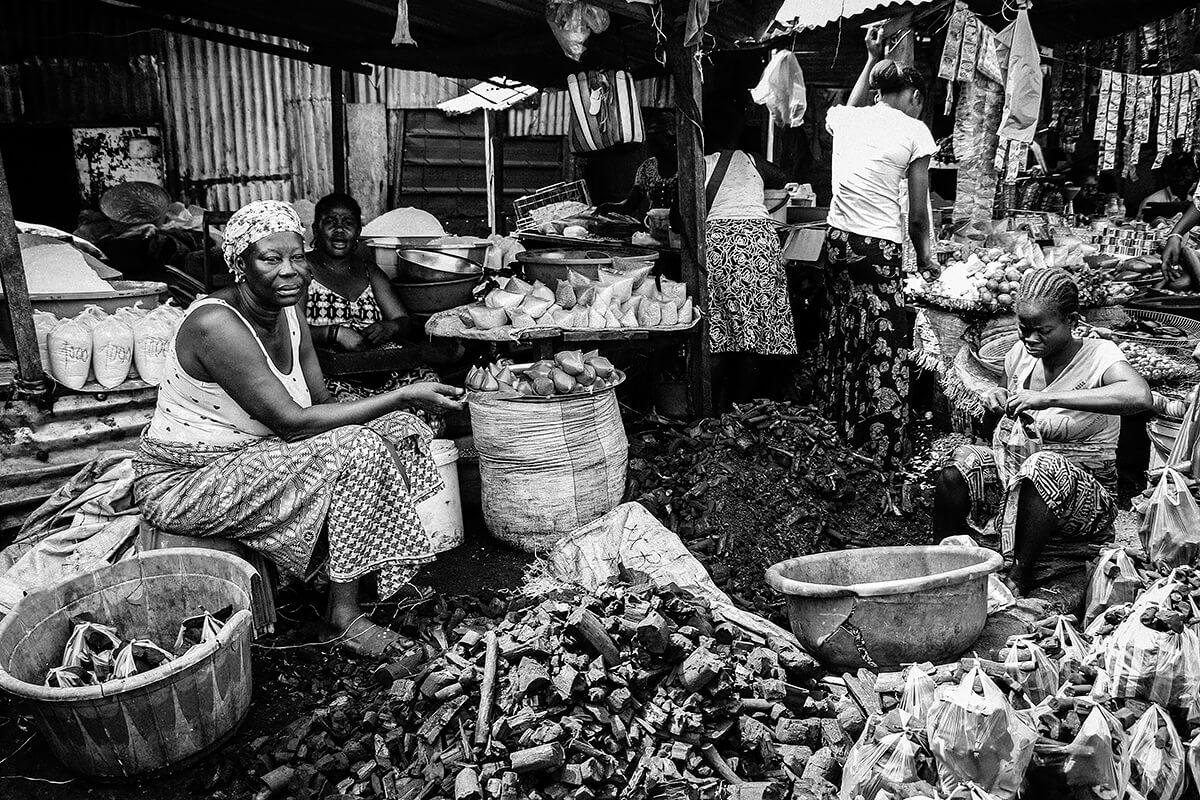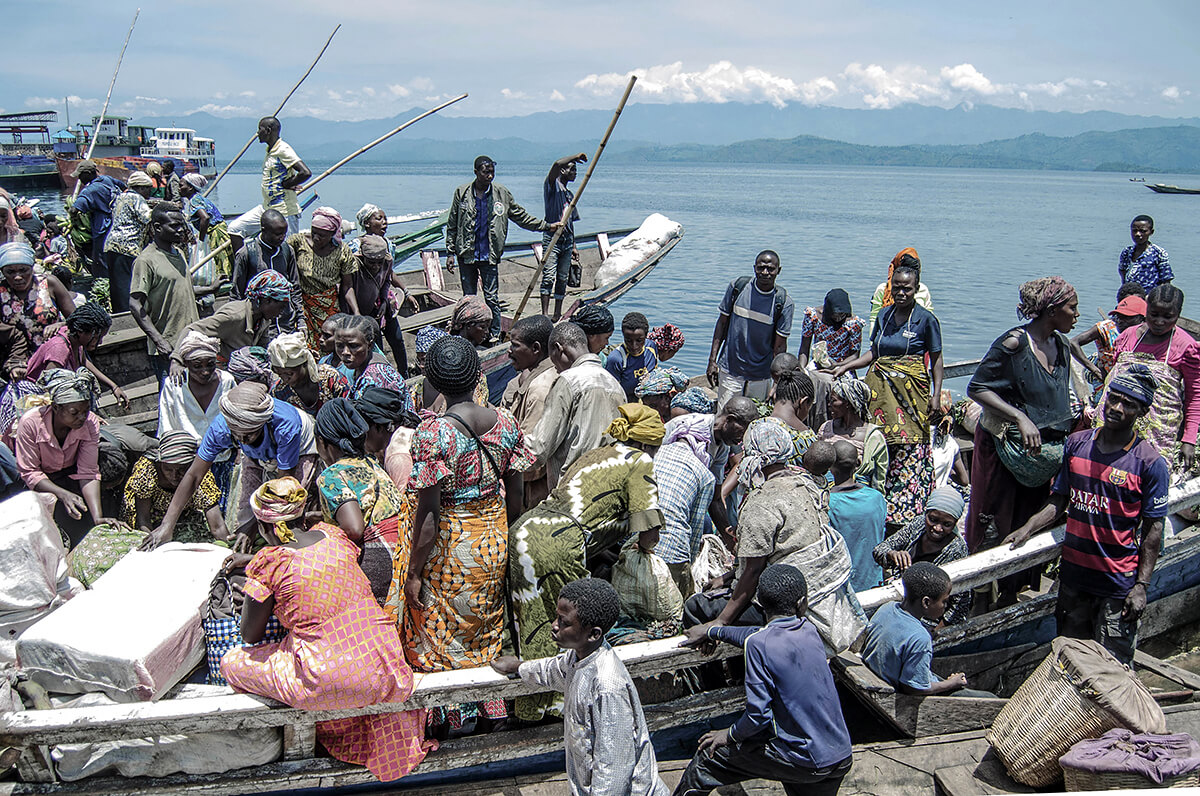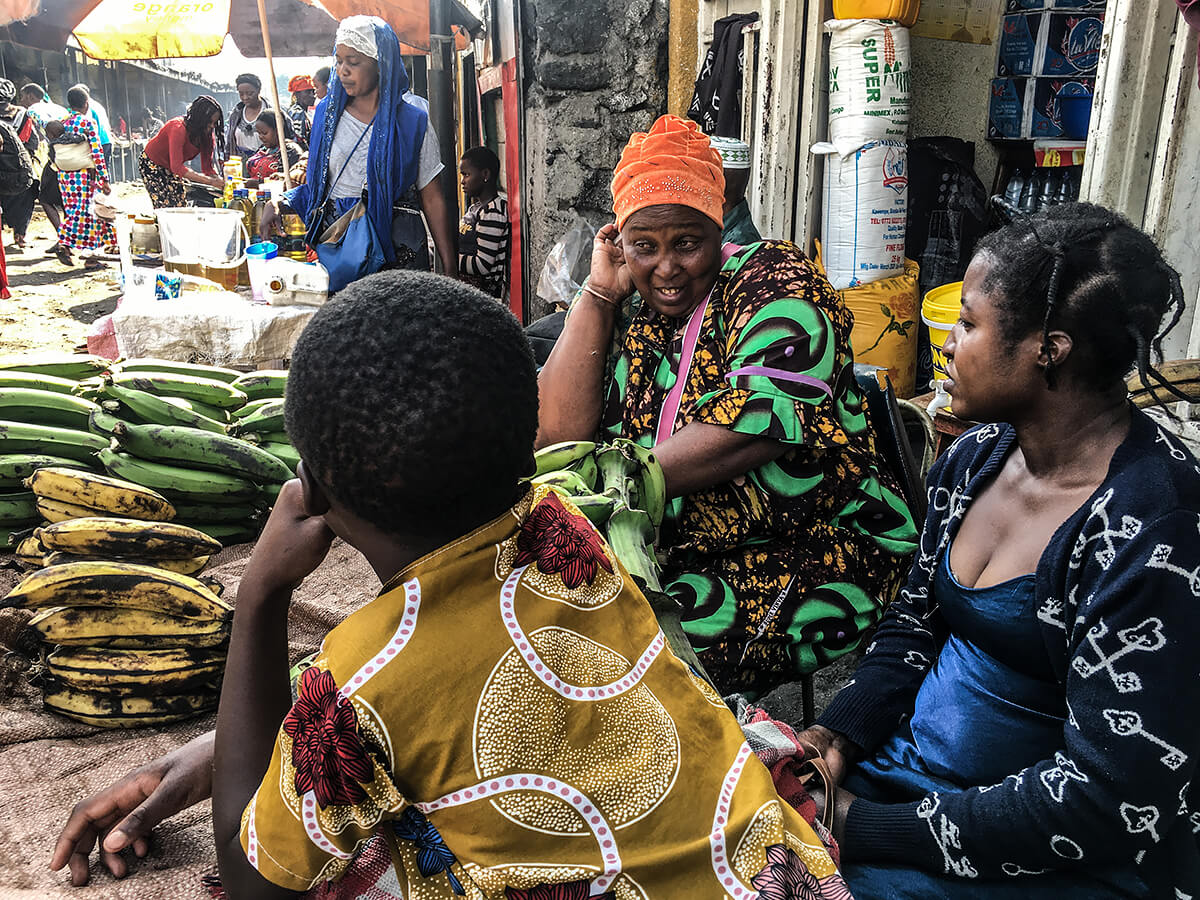The 11th Carmignac Photojournalism Award on the Democratic Republic of Congo (DRC)-was granted to Canadian-British photographer
Finbarr O'Reilly.
Every year, the Carmignac Photojournalism Award supports the production of a 6-month photo-reportage by the laureate, which is then published in a monograph and presented in a traveling exhibition. Finbarr O'Reilly started his reportage in January but as borders closures prevent him from traveling to DRC, he and the Award team re-conceived their approach to adapt the reportage to the ongoing crisis. This led to the conception of
'Congo In Conversation', a collaborative digital reportage produced in close cooperation with Congolese journalists and photographers.
Transmitted via a dedicated website and the Carmignac Award's social networks, Congo in Conversation provides a pioneering, regularly updated, stream of articles, photo reportages and videos documenting the human, social, and ecological challenges faced in the Congo today, in the context of an unprecedented health crisis.
The website
congoinconversation.fondationcarmignac.com was launched April 28, 2020
© Finbarr O'Reilly for Fondation Carmignac
A Red Cross burial worker shows a man how to put on protective gloves before the inspection of the body of an 11-month old girl who died during the Ebola outbreak in the town of Rutshuru in North Kivu province, February 2020.
© Finbarr O'Reilly for Fondation Carmignac
Neighbours and Red Cross burial workers in protective clothing gather outside the home of a family where an 11-month-old girl has died during Congo's Ebola outbreak in the town of Rutshuru in Congo's North Kivu Province, February 2020.
© Finbarr O'Reilly for Fondation Carmignac
Neighbours and Red Cross workers in protective clothing prepare to bury an 11-month-old girl who died during Congo's Ebola outbreak in the town of Rutshuru in Congo's North Kivu Province, February 2020.
© Finbarr O'Reilly for Fondation Carmignac
Red Cross burial workers the body of an 11-month old girl who died in the town of Rutshuru during the Ebola outbreak, February 2020.
© Finbarr O'Reilly for Fondation Carmignac
Red Cross burial and mourners attend the burial of an 11-month old girl who died in the town of Rutshuru in North Kivu province during the Ebola outbreak, February 2020.
The 11th Carmignac Photojournalism Award project will explore - with cautious
optimism - the future of the Democratic Republic of Congo, documenting the harsh realities that have impeded progress in this long-exploited country. Within the context of the coronavirus pandemic, the project is turning its attention to how the Congolese are coping with the worst global health crisis in a century - in addition to managing the second-deadliest Ebola epidemic in history and the world's deadliest measles outbreak.
American hospitals and Italian villages are currently on the front lines of the
global pandemic. But epidemiologists and public health experts say the coronavirus
will soon spread south, engulfing low-income nations already plagued by fraying
health-care systems, fragile governments, and impoverished populations for whom
social distancing is nearly impossible.
The Fondation Carmignac will provide an outlet for Congolese voices to contribute to the global discourse. Due to this pandemic, some of the world's poorest nations are already confronting their greatest economic challenge in decades. According to the UN, nearly half of all workers throughout the African continent could lose their jobs. Citizens of poor nations living under weak or repressive governments are at particular risk of finding themselves at the bottom of the global scramble for scarce resources like medicines and ventilators. Meanwhile, another virus - measles - is already ravaging the country. Since January 2019, more than 6,500 children have died from the disease and 335,000 others have been infected, according to the latest World Health Organization data (WHO). This is unfolding in a country still at war with itself, where dozens of armed groups regularly clash in Congo's eastern provinces, and where a shadowy militia is responsible for massacring hundreds of civilians over the past few months alone.
There is a silver lining for Congo, however. The country is in a unique position
to respond to yet another viral outbreak, having also dealt with the second-worst
Ebola epidemic in history - spanning 3,453 cases and 2,273 deaths - over the past
18 months. This crisis means that Congolese officials adhere closely to advice from
the WHO. As seen internationally, an early response is critical in containing the virus.
On March 24, President Tshisekedi declared a countrywide state of emergency and shut down national borders to limit infections. Already accustomed to the measures that prevent the spread of viral infections, the country has maintained
essential health practices: widespread temperature screening and handwashing at
entry points, the installation of hand-washing stations in public places (markets,
health centers, etc.), distributions of soap and cleaning products, and awareness
campaigns using posters, leaflets, radio spots, and community networks.
Much of the country is on lockdown, but millions of Congolese rely on the
informal economy to survive and live life on the margins with little to no social safety
net. Street vendors, traders and motorcycle-taxi drivers rely on what they earn for
the day and frequently lack property or savings. Many are without running water or
electricity, although the government has promised free electricity and water during
the pandemic. Still, the notion of social distancing is impossible to apply when many
Congolese sleep in rooms or settlements crammed with people.
Through its network of contributors working in compliance with professional journalistic ethics and standards, the Carmignac Award's Congo project will document human rights and environmental issues, providing in-depth reportages, snapshots of daily life and struggles in this huge country, as it faces an unprecedented health crisis.
CONTRIBUTORS
Arlette Bashizi is a freelance photographer based in Goma covering music, culture and daily life. She is a member of the
@collectifgomaoeil and the Congo Women's Photographers Network.
Justin Makangara is an independent photojournalist and blogger based in Kinshasa. His work focuses on underreported stories surrounding social justice, politics, music, and daily life. He is a member of APJD African Photojournalist Database, and a VII academy scholarship holder.
© Justin Makangara for Fondation Carmignac
A market in DR Congo's capital Kinshasa in mid-March, 2020. Congolese authorities closed schools and shut down major commercial activities to enforce social distancing in a country where many people weren't taking precautions and didn't believe the virus was a threat to them during the early days of the pandemic.
is a freelance journalist and cameraman based in Beni covering conflict, the Ebola epidemic, and local news. He works as the Eastern Congo correspondent for the Associated Press.
Baron Nkoy is a Kinshasa-based journalist, documentary filmmaker. His work explores poverty in local communities and efforts to bring about positive change. He is a member of the International Federation of Agricultural Journalists and the National Press Union of Congo.
Moses Sawasawa is a freelance photographer based in Goma, covering humanitarian issues, culture, health, and daily life. He is the cofounder of
@collectifgomaoeil, which promotes positive images of Congo.
© Moses Sawasawa for Fondation Carmignac
Vendors and shoppers at Kituku market on the shores of Lake Kivu in Goma, eastern Democratic Republic of Congo, April 2, 2020. Many Congolese survive on their daily earnings and cannot afford to follow health advisories on maintaining social distance.
is an independent Goma-based photojournalist and a reporter with BBC in the Democratique Republic of Congo. She has a degree in journalism from the Université de Cepromad. She reports on conflict and documents the social and cultural evolution of the eastern part of the continent, with a focus on Congo. Ley is a contributor to Everyday Africa and a member of the International Women's Media Foundation.
© Ley Uwera for Fondation Carmignac
Vendors at a street market in Goma, eastern Democratic Republic of Congo, April 25, 2020. Many Congolese survive on their daily earnings and cannot afford to follow health advisories on maintaining social distance.
is a journalist and filmmaker based in Goma in Eastern DRC. She reports on issues related to human rights, the environment and the exploitation of raw materials, bearing witness to the resilience of the people in this conflict-affected region.
Steve Wembi is a Kinshasa-based investigative reporter who has worked as a contributor for The New York Times, Al Jazeera, and Xinhua. He has a diploma in criminology from the Kenya Institute of Studies in Criminal Justice.
Finbarr O'Reilly biography
Finbarr O'Reilly is an independent photographer and multimedia journalist, and
the author of the nonfiction memoir,
Shooting Ghosts, A U.S. Marine, a Combat
Photographer, and Their Journey Back from War (Penguin Random House 2017). He
is the 2019 Nobel Peace Prize exhibition photographer and a frequent contributor to
The New York Times. His photography and multimedia work has earned numerous
industry honors, including First Place in the Portraits category at the 2019 World
Press Photo Awards. He was also winner of the World Press Photo of the Year in 2006.
Finbarr lived for twelve years in West and Central Africa and has spent two decades
covering conflicts in the Democratic Republic of Congo, Chad, Sudan, Afghanistan,
Libya, and Gaza. He has held academic fellowships at Harvard, Yale, and Columbia
University and is a board member of ACOS Alliance, an organization working to
embed a culture of safety across newsrooms and for freelance and local journalists
worldwide. Finbarr lived in Congo and Rwanda from 2001-2004 and has returned
often over the past twenty years. In 2019, he spent months reporting from inside
the second-largest Ebola outbreak in history while producing the documentary film
Ebola In Congo for PBS FRONTLINE. The film tells the stories of local health workers
risking their lives to battle Ebola in a region devastated by decades of conflict. Finbarr
is among those profiled in Under Fire: Journalists in Combat, a documentary film
about the psychological costs of covering war. The film won a 2013 Peabody Award
and was shortlisted for a 2012 Academy Award. He is based in Dublin, Ireland.
